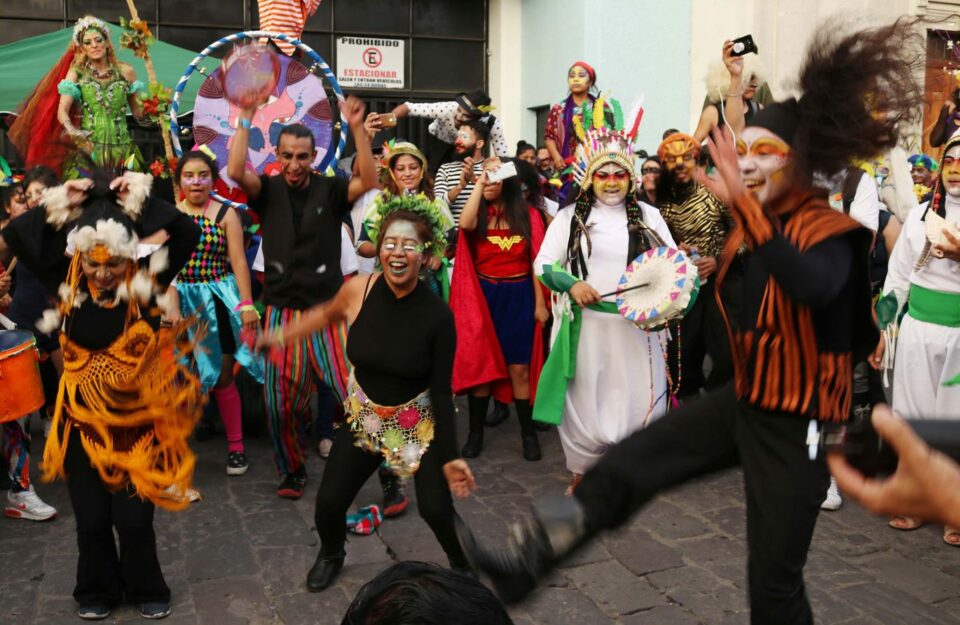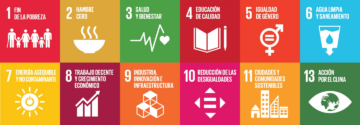Culture and its cross-cutting role in the 2030 Agenda for Sustainable Development

The 2030 Agenda recognizes the role of culture as an element to enhance social, economic and environmental policies and, thus, as a vehicle towards a sustainable development that leaves no one behind.
As stated in the Mexico Declaration on Cultural Policies of 1982, which is considered a conceptual milestone in this matter, culture is a complex and multidimensional phenomenon:
In its widest sense, culture may now be said to be the whole complex of distinctive spiritual, material, intellectual and emotional features that characterize a society or social group. It includes not only the arts and letters, but also modes of life, the fundamental rights of the human being, value systems, traditions and beliefs; it gives man the ability to reflect upon himself. It is culture that makes us specifically human, rational beings, endowed with a critical judgement and a sense of moral commitment. It is through culture that we discern values and make choices. It is through culture that man expresses himself, becomes aware of himself, recognizes his incompleteness, questions his own achievements, seeks untiringly for new meanings and creates works through which he transcends his limitations. (Mondiacult, 1982, p. 1).
Accordingly, culture is recognized as an instrument for individual and social transformation and, therefore, as a cross-cutting mechanism to address development problems. Indeed, the United Nations Educational, Scientific and Cultural Organization (UNESCO, 2020) aims at:
Incorporating culture into all development policies, be they related to education, science, communication, health, environment or cultural tourism and, on the other hand, (at) supporting the development of the cultural sector through creative industries. By contributing in this way to poverty alleviation, culture offers important benefits in terms of social cohesion.
This broad vision of culture and development is aligned with the 2030 Agenda for Sustainable Development. Although there is no specific SDG dedicated to culture, the 2030 Agenda does include a cross-cutting recognition of its role as an element to enhance social, economic and environmental policies and, thus, as a vehicle towards a sustainable development that leaves no one behind. In this sense, the declaration’s introduction already mentions the respect for cultural diversity, and references to culture in the framework of several SDGs can also be identified.
The most remarkable mention appears in SDG 11 (Sustainable cities and communities), which refers to cultural heritage (target 11.4). The association between culture and cities, conceived as physical and symbolic spaces, is pointed out, both of them being essential for the preservation of tangible and intangible assets threatened by climate change, social conflicts and/or economic inequalities. UNESCO had already made significant progress in 2013 with respect to this pair of concepts, at the Congress Placing Culture at the Heart of Sustainable Development Policies:
[…] reaffirm the potential of culture as a driver for sustainable development, through the specific contributions that it can make – as knowledge capital and a sector of activity – to inclusive social, cultural and economic development, harmony, environmental sustainability, peace and security. (UNESCO, 2013, p.6)
This was also the case at the 2016 Habitat III Conference, where the United Nations adopted the New Urban Agenda as the roadmap to guide sustainable urban development and transform the world’s cities in the next 20 years (UNESCO, 2020).
In addition, SDG 4 (Quality education), specifically proposes, in target 4.7, that by 2030, all learners acquire the knowledge and skills needed to promote sustainable development, through the promotion of a culture of peace and the appreciation of cultural diversity and of culture’s contribution to development, among others.
On the other hand, Hosagrahar (2017, p. 12) mentions that “cultural tourism accounts for 40% of the world’s tourism income”, which positively impacts on labor and economy. From this approach, culture can be related to SDG 8 (Decent work and economic growth) and SDG 12 (Responsible consumption and production), specifically to targets 8.9 and 12.b, which link the promotion of tourism with culture’s strengthening. Likewise, the potential contribution to these SDGs can also be identified in the impact culture has on the promotion of creative industries.
Ibero-America is no stranger to this debate and the Ibero-American General Secretariat (SEGIB by its Spanish acronym) is currently working on the Strategy for Culture and Sustainable Development, through which culture is being mainstreamed into the targets of the 2030 Agenda, from an Ibero-American perspective. Additionally, and as a result of the partnership with the Fund for the Development of Indigenous Peoples of Latin-America and the Caribbean (FILAC by its Spanish acronym), work is underway to create an Ibero-American Institute of Indigenous Languages to preserve and protect the heritage of indigenous languages spoken in Latin-America, especially those that may become extinct.
May 2021
*
Source: SEGIB based on Hosagrahar (2017), MONDIACULT (1982), UN (2015), UNESCO (2013) (2020) and Agencies and Directorates-General for Cooperation.
